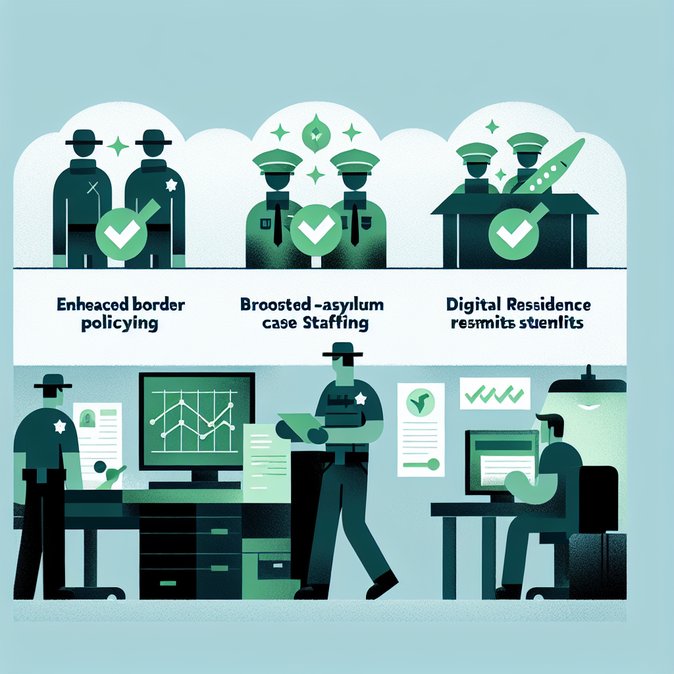
During the 27 November plenary, Germany’s Bundestag approved a €15.76 billion budget for the Interior and Community Ministry for fiscal 2026—up €1.9 billion year-on-year. Key appropriations include €1.24 billion for the Federal Criminal Police Office (BKA), €606 million for civil-protection agency BBK, and a significant €350 million line to expand the Federal Police’s mobile border-control units and roll out next-generation EasyPASS e-gates at Frankfurt and Munich airports.
An additional €200 million is allocated to hire 2,000 migration-case officers and accelerate asylum-application digitisation—a response to criticism over backlogs and court challenges. Lawmakers also set aside €50 million for pilot projects enabling digital residence permits in the Ausländerbehörden of Berlin, Hamburg and North Rhine-Westphalia.
![Bundestag boosts 2026 interior budget, earmarks funds for migration control and digital ID]()
For corporations, more funding means stricter enforcement of overstays and faster verification of residence permits during payroll audits. Conversely, the digital-ID pilot could shorten in-country change-of-status processes from months to weeks once scaled nationally.
The budget still needs Bundesrat approval, expected mid-December. HR and compliance teams should review the new fee schedule (visa and residence-permit charges rise 8 % from 1 January 2026) and anticipate enhanced workplace-raid activity by the Financial Control of Undeclared Work (FKS), which receives €120 million extra under the same bill.
An additional €200 million is allocated to hire 2,000 migration-case officers and accelerate asylum-application digitisation—a response to criticism over backlogs and court challenges. Lawmakers also set aside €50 million for pilot projects enabling digital residence permits in the Ausländerbehörden of Berlin, Hamburg and North Rhine-Westphalia.

For corporations, more funding means stricter enforcement of overstays and faster verification of residence permits during payroll audits. Conversely, the digital-ID pilot could shorten in-country change-of-status processes from months to weeks once scaled nationally.
The budget still needs Bundesrat approval, expected mid-December. HR and compliance teams should review the new fee schedule (visa and residence-permit charges rise 8 % from 1 January 2026) and anticipate enhanced workplace-raid activity by the Financial Control of Undeclared Work (FKS), which receives €120 million extra under the same bill.








